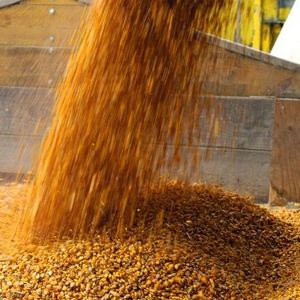GTL Resources, QTI partner to develop NextGen Frac technology

December 23, 2013
BY GTL Resources USA Inc.
GTL Resources USA Inc., owner of Illinois River Energy LLC, and Quality Technology International Inc., through its subsidiary, QTI-AMG LLC, announced that they have formed a partnership to collaborate on a new, transformative hybrid fractionation technology for corn, dubbed NextGen Frac. This novel technology solves the serious starch loss and co-product purity problems of current standalone dry fractionation technologies without the complexity and cost of whole kernel wet milling, potentially a major financial boon for corn ethanol manufacturing.
“We believe that the NextGen Frac process will be a game-changer in the corn bio-refining space by substantially improving co-product values, reducing ethanol production costs, and opening-up the potential in corn bio-refining to produce next generation biochemicals and biofuels from differentiated corn fractions,” said Richard Ruebe, group CEO of GTL and IRE.
In dry grind corn bio-refineries retrofitted with the NextGen Frac process, instead of milling corn kernels into whole corn flour, the kernels are dry fractionated into separate endosperm, germ, and bran fractions. The endosperm fraction goes directly into fermentation while the germ and bran fractions are separately wet milled to recover bound starch for fermentation, consequently purifying the germ fraction for food-grade corn oil recovery and the bran fraction for ruminant feed or potential use in biochemical or cellulosic ethanol production.
“This technology addresses the dilemma of producing either high quality food or transportation fuel by producing both, economically,” said Dan Hammes, president of QTI. “We look forward to a successful collaboration with GTL to demonstrate our technology and to provide the human food and animal feed markets with demonstrably superior co-products.”
As a retrofit of traditional dry grind corn bio-refineries that produce ethanol and distillers grains, NextGen Frac has several major advantages:
Advertisement
Advertisement
- More efficient fermentation of corn starch to ethanol and/or other biochemical compounds, due to the fermentation broth being more pure in starch (with much less oil and fiber);
- A high protein distillers grains product, trademarked Glutenol, which has a much higher nutrient value than traditional distillers dried grains in poultry and swine rations;
- A clean, high-oil corn germ product, trademarked NeutraGerm, that is never exposed to chemicals and enzymes and is suitable for food-grade corn oil extraction; and,
-A new animal feed co-product, trademarked ProBran, made from the separated corn bran and surplus condensed distillers solubles that is a replacement for corn with high nutrient value in ruminant rations.
GTL has worked with QTI for several years to support the development of the NextGen Frac technology, including previous work at a pilot facility at IRE in Rochelle, Ill. This early success at smaller scale has prompted GTL and QTI to move forward with the start-up of an automated, three thousand bushel-per-day NextGen Frac demonstration facility, currently under construction on the IRE campus. GTL and QTI will refine the NextGen Frac technology and show technical soundness and scalability prior to making a decision on commercialization. The demonstration facility is expected to be operational in March 2014 and in use for much of that year, managed by GTL’s deep technical staff of several engineers and operated by a mix of seasoned corn bio-refinery operators and chemical engineering co-ops needed for its 24/7 operations.
Advertisement
Advertisement
Following a successful development and demonstration at IRE, GTL intends to be the first commercial licensee of the NextGen Frac process at IRE. GTL would own and operate the facility while QTI would market the Glutenol, NeutraGerm, and ProBran to both domestic and international users under an exclusive marketing agreement. As GTL and QTI believe the technology will have broad appeal to corn bio-refiners and co-product users alike, the parties would also form a new joint venture entity to license the NextGen Frac technology.
“With the substantial resources GTL and QTI are bringing to bear to demonstrate the robust commercial viability of NextGen Frac, we are confident the collaboration will be a success and lead to commercialization at IRE and a subsequent, successful technology licensing business for QTI and GTL, “ Ruebe added.
GTL is a US based bio-refining company and wholly owns IRE, a 125 million gallon per year dry-grind ethanol plant located in Rochelle, Ill. QTI, a wholly owned subsidiary of ITOCHU International Inc., is a value-added food and feed ingredient marketer based in Elgin, Ill. QTI-AMG is an LLC between QTI and AMG Inc., a full-service agricultural engineering firm located in Dayton, Ohio.
Related Stories
The USDA’s Risk Management Agency is implementing multiple changes to the Camelina pilot insurance program for the 2026 and succeeding crop years. The changes will expand coverage options and provide greater flexibility for producers.
EcoCeres Inc. has signed a multi-year agreement to supply British Airways with sustainable aviation fuel (SAF). The fuel will be produced from 100% waste-based biomass feedstock, such as used cooking oil (UCO).
SAF Magazine and the Commercial Aviation Alternative Fuels Initiative announced the preliminary agenda for the North American SAF Conference and Expo, being held Sept. 22-24 at the Minneapolis Convention Center in Minneapolis, Minnesota.
Saipem has been awarded an EPC contract by Enilive for the expansion of the company’s biorefinery in Porto Marghera, near Venice. The project will boost total nameplate capacity and enable the production of SAF.
Global digital shipbuilder Incat Crowther announced on June 11 the company has been commissioned by Los Angeles operator Catalina Express to design a new low-emission, renewable diesel-powered passenger ferry.
Upcoming Events










